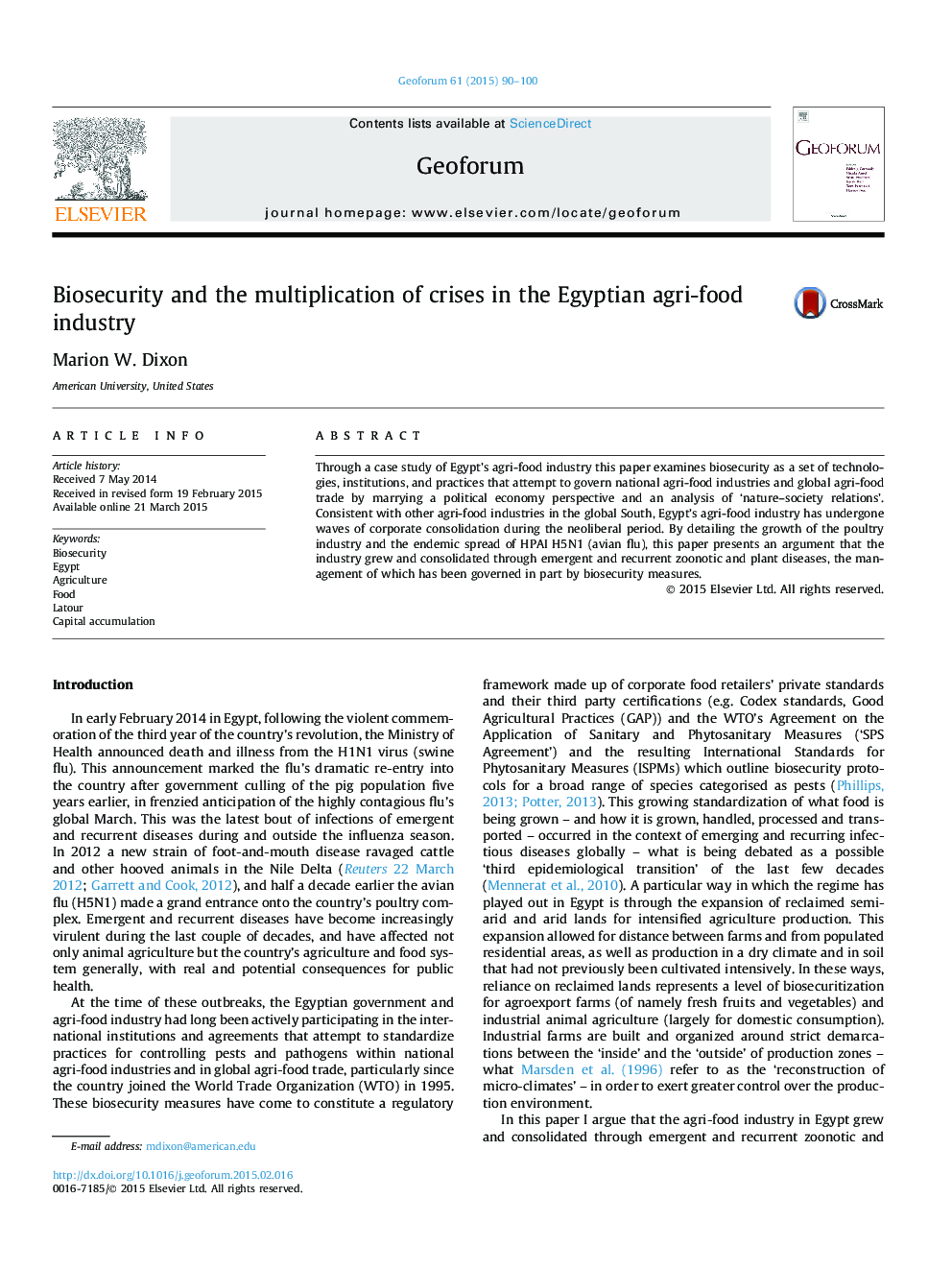| Article ID | Journal | Published Year | Pages | File Type |
|---|---|---|---|---|
| 5073774 | Geoforum | 2015 | 11 Pages |
â¢Egypt's agri-food industry grew through zoonotic and plant diseases.â¢The intensification of agriculture is an ecological process.â¢Biosecurity provides a theoretical lens on how capital accumulates through nature.â¢Industrial poultry contracts out risk to smaller-scale operators in the form of H5N1.
Through a case study of Egypt's agri-food industry this paper examines biosecurity as a set of technologies, institutions, and practices that attempt to govern national agri-food industries and global agri-food trade by marrying a political economy perspective and an analysis of 'nature-society relations'. Consistent with other agri-food industries in the global South, Egypt's agri-food industry has undergone waves of corporate consolidation during the neoliberal period. By detailing the growth of the poultry industry and the endemic spread of HPAI H5N1 (avian flu), this paper presents an argument that the industry grew and consolidated through emergent and recurrent zoonotic and plant diseases, the management of which has been governed in part by biosecurity measures.
